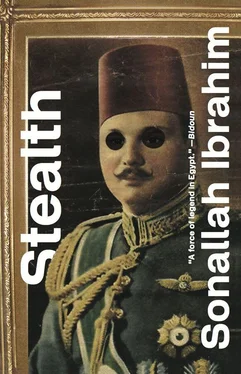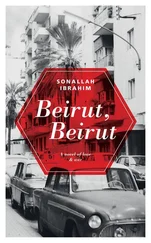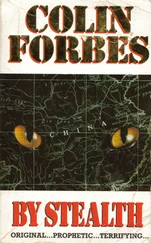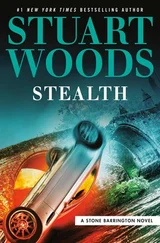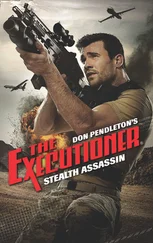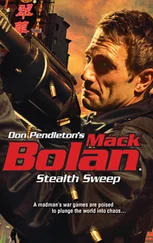We leave the building. We cross the street. I’m expecting that he’ll go to the café, but he walks around it. He goes through a small alley across the way. We end up in the street with the tram line and wait on the platform at the station. We get on. We get off at Attaba Square. I know it by the white firehouse with the red trucks sitting in its driveway.
We cross the square to the huge building that is facing us. It has a round dome at the top. I say that I’m thirsty. The araqsoos vendor stands in our way, clanging together his castanets. I drag one of the folding chairs to the window and climb up on it. The araqsoos vendor comes out of the side alley. His clothes are white and clean. The glass barrel of araqsoos is resting on his belly. Its opening holds a stack of straw with a piece of ice showing from the top of it. He leans backwards. The castanets are in his hand. I watch until he starts beating them in a nice rhythm and calling out: “ Araqsoos , it’s good and sweet!”
Father knows I do not like drinking araqsoos. We go around the building. We stop in front of a shop called “Wilson.” A big counter takes up the shop, with three big round glass jugs on it. The first one has barley water in it, the second tamarind, and the third a red drink.
Father orders a mug of sugar cane juice for me. The worker puts three stalks of cane into two wooden funnels. He turns the wheel that moves them. The juice runs off on to a metal runner. He throws a piece of ice into the glass pitcher and sets it at the end of the runner. When it fills, he lifts it up and pours me a mug. I drink it with joy.
We go back to the square, and walk into a narrow hallway in the huge building. A small enclosed garden. A wide area with tables and chairs. We sit in one of the corners. A Greek waiter in a white shirt and black trousers comes up to us. His collar looks all fancy in its black bow-tie. He speaks to father, saying: “Bonjour, Excellence.” He is carrying a tray on top of a clean white towel. He takes little plates off of it and puts them on the table. Tahini, black olives, peanuts, and foreign bread cut in crescent shapes. He goes over to a high counter at the other end of the room. There are high chairs in front of it. At one end, there is a wooden barrel leaning on its side. He puts a glass under the tap at the top of the barrel. He waits until the cup fills up and white foam runs over its sides. He lifts the mug and wipes off its sides with a cloth, then brings it to us.
Father takes off his fez. Wipes the sweat off his bald head with a handkerchief. He sips a bit from the beer mug then lights a cigarette. I take a piece of bread, plunge it into the tahini, and gobble it up. I pick at the dish of peanuts. A vendor comes by in a gallabiya carrying a small basket full of boiled prawns. Father shakes his head to say no. Another vendor follows selling lottery tickets. Father takes a notebook from him that has schedules of numbers. He takes a lottery ticket out of his suit jacket pocket. He searches for its numbers in the register. Then he gives it back to the vendor with a sad smile. He takes some tickets from him and chooses one. He pays him a piastre. The shoeshine man comes over to us. He sits down at father’s feet. Father puts his right foot up on the step of the shine box.
I stare at the high counter with many men standing around it. A row of colored bottles is behind it. I see an old man who looks like a foreigner in fancy clothes stretched out on the floor next to the counter. He keeps repeating words that make the men, who are standing, laugh. No one bothers to help him get up. The small bottle on the table has a lot of plates spread around it. Smell of sautéed liver. The room is empty. Mother’s voice comes from the bedroom: “Darling come and save me, see what I’ve been through. “My father’s voice finishes the lyrics: “I’ve been crushed by passion for you.”
The shoeshine finishes the right shoe and taps on the wooden box. Father puts down his right foot and lifts up his left. I take the last piece of bread and use it to wipe clean the plate of tahini. The shoeshine finishes up. Father gives him half a piastre. He raises his mug of beer to his lips. He swallows its last drops slowly. The waiter comes back and asks father if he wants anything else. He shakes his head. We pay and leave.
We catch the tram, riding in the closed car. There’s an empty seat next to a man in a caftan and a country style skull cap. I ride on father’s lap. The back of the seat in front of us is in my face. A woman in a black cloak is sitting on it, next to a girl wearing a blouse and skirt. The woman has taken over the space that separates the chairs. Her thighs hang over the edge of the seat a little. A man in a suit and fez comes by. He stands next to her seat. He leans over and rests his hand on the back of the chair. His knee is very close to the upper part of the woman’s thigh.
I look out of the window at the cinema billboards. The tramcar rocks from side to side. I turn back around to the front. I notice the man’s knee rubbing against the woman’s leg. She leans over to her friend and they exchange whispers. The man rubs his knee on her thigh. I look up at his face. He stares back at me. I turn my eyes back to the window. I pretend to stare at the street, but I can see her from the corner of my eye, leaning further toward her friend. The man’s knee is almost right on her crack. I look up at his face. He stares straight back. His look sets on me, so I turn away. The tram stops. The woman gets up in a hurry. She says goodbye to her friend. She avoids looking at the man. She pushes her way quickly through the passengers who are standing and heads toward the door. Her cloak is caught up in her crack. One of the people standing up takes her seat. The man’s face is pale. There are beads of sweat on his forehead. He bends over to look out of the window of the tramcar, then stands back up straight. He looks around. Our eyes meet. He stares hard. I turn my eyes away.
We get off the tramcar in the square. We cross it to go over to the Dukhakhny shop at the corner of Farouk and al-Zaher streets. Father buys a pack of his cigarettes with the yellow package and the picture of the Ethiopian head. We circle the square and cross the street that leads to our old house. We come to the Um ’Abbas fountain. One of the passers-by drinks from its tap. I look towards the street that goes up to our old house. The florist stands on the corner. The horse’s head is buried in his sack of feed. Three street sweepers with their yellow clothes, bushy moustaches, and long brooms are at work. Their caps are turned backward, for the brims to shade the back of their necks. He pounds the broom’s handle on the ground to fix its head back on. Dust comes off it. The head falls off the handle again. He sits down on the pavement. He fastens a piece of a rag between the head and the stick.
We cross the street. We make it to Abdel Malik bakery. We head for the pharmacy. Father pushes the dark glass door. The breeze from the circular ceiling fan hits us. The pharmacist is wearing glasses with big thick lenses. Father asks about his account. The chemist flips through pages of his register. Father pays him a chunk of what he owes. He promises to pay the rest at the beginning of next month. He leans to him and whispers something. The man smiles and says: “I wish. Try taking some Vitamin B.” Father buys two small bottles — one with tincture of iodine, the other mercurochrome.
We go back to Nuzha Street. We stop in front of the butcher. Father buys a pound of kidneys and sheep’s testicles. He pays last month’s bill. He asks: “What’s new with your father?”
He answers in a disapproving voice: “He’s with his bride.”
Читать дальше
